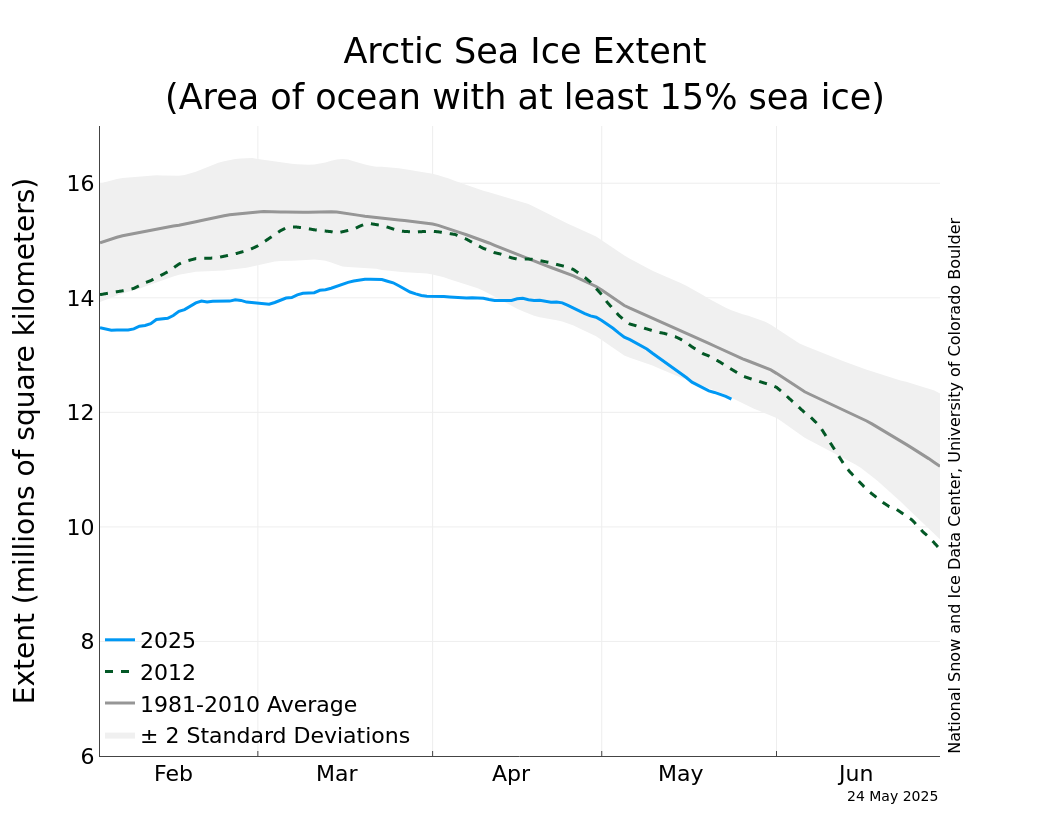Page 1 of 1
NASA reports 2010 hottest year on record so far
Posted: 11 Nov 2010, 20:17
by biffvernon
Posted: 08 Dec 2010, 14:30
by snow hope
Have a read of this link Biff, since they seem to have missed some relevant facts,
http://wattsupwiththat.com/2010/12/06/b ... ome-sites/
Page down 5 times for the information.
Posted: 08 Dec 2010, 17:09
by biffvernon
Sorry, what am I meant to be looking at?
Posted: 08 Dec 2010, 17:24
by Bandidoz
You mean the bit where the running average stops at June? Surely that's just normal? He's also wrong to be comparing peaks, which is why running averages are used.
Posted: 17 Dec 2010, 13:12
by Pepperman
The salient graph is this one down at the bottom right which overlays the previously two hottest years:
 bigger version
bigger version
Which clearly shows that 2010 is on track. Watts is a complete joker - how anyone can take him seriously is beyond me.
Posted: 19 Dec 2010, 23:35
by Andy Hunt
Hansen's data is coming in for some flak:-
http://www.telegraph.co.uk/comment/colu ... ature.html
So what are these other datasets which show a global cooling?
Posted: 19 Dec 2010, 23:46
by RenewableCandy
I think the "other dataset" is one gathered by a posse of Torygraph reporters while on their way back from the pub at lunchtime

The necessary constants and conversion factors (many still the subject of ongoing research, of which, of course, more is necessary) include:
Freezing point of beer
wind chill factor of curry
sublimation point of garlic
Kelvin per brass monkey
Posted: 20 Dec 2010, 00:02
by Andy Hunt
The article doesn't actually reference what these other datasets are. The main complaint about Hansen's data is that he has used assumptions to 'fill in blanks' where there are no temperature surface readings.
The data used in the link snow hope posted is UAH (satellite) data, which although he is arguing the toss over whether 2010 is joint hottest with 1998, still shows the warming trend clearly.
It would be completely amazing to me if global temperatures rose in a completely linear fashion. The important thing is the long term trend, something which both datasets appear to agree on.
Posted: 20 Dec 2010, 00:32
by RenewableCandy
What I wonder about is whether they include the surface of the sea (I mean as well as the air temp over the sea) in these measurements. After all, it holds much more heat than the air, and exchanges heat with it. If it turned out that for some reason the near-surface of the sea were cooling as the air warms, would that count as GW? Would it count as a problem?
Posted: 20 Dec 2010, 12:11
by Andy Hunt
Posted: 20 Dec 2010, 16:08
by biffvernon
The Arctic ice cover just got a tad less! First sign of spring?


